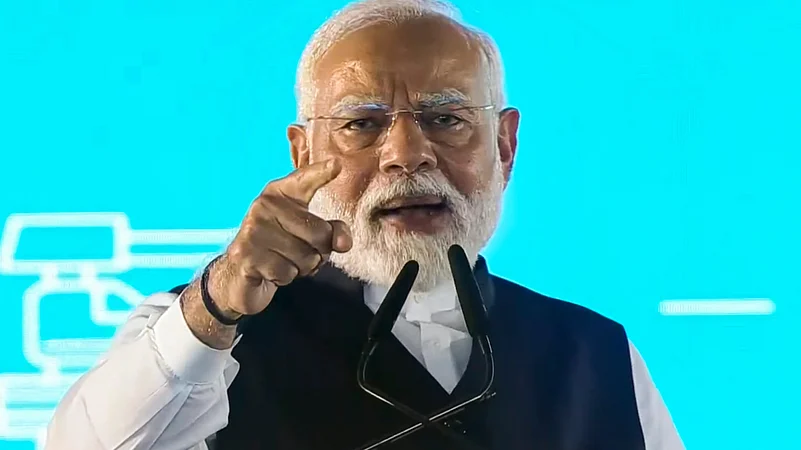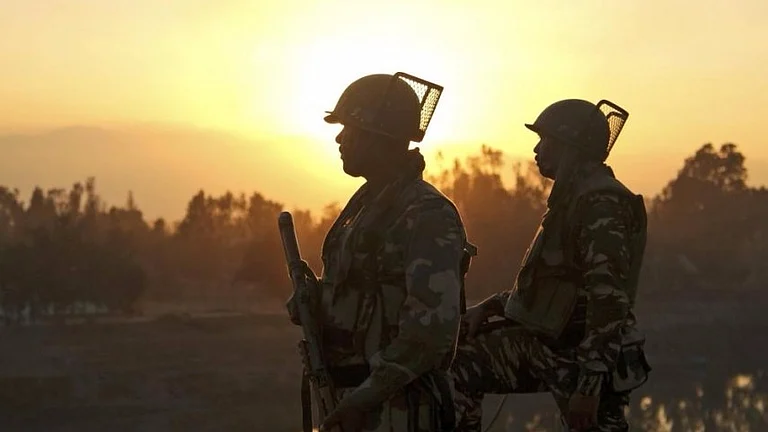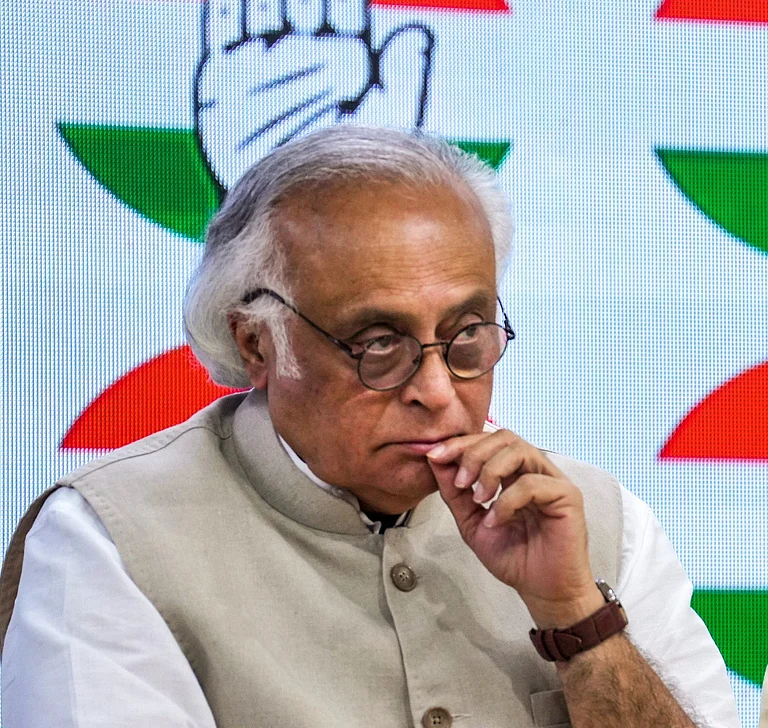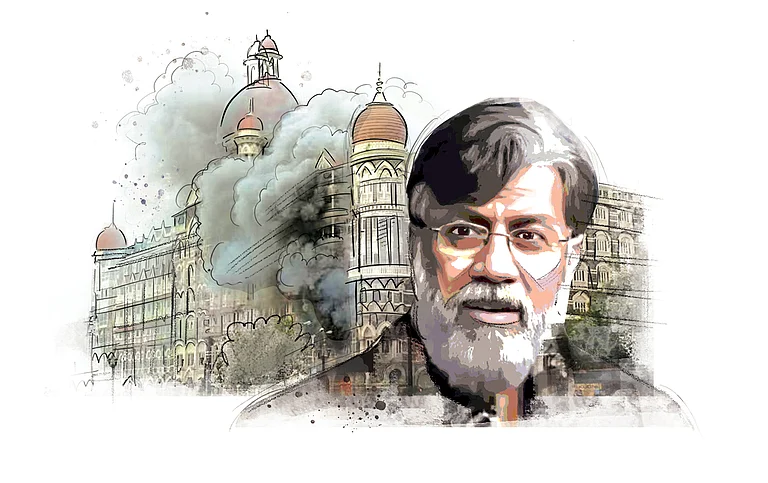
Modi questioned who in Congress stopped India’s retaliation against Pakistan after the 2008 Mumbai terror attacks.
He said the UPA’s weak stance on terror cost the nation heavily and emboldened extremists.
The PM also inaugurated the first phase of Navi Mumbai International Airport and other major infrastructure projects.
On Wednesday, Prime Minister Narendra Modi accused the Congress of undermining the battle against terrorism while in power and demanded that the party explain to the country who stopped India's military response to the 26/11 Mumbai terror strikes, which were related to Pakistan.
He claimed that the UPA government, which was governed by the Congress from 2004 to 2014, had weakened the war against terror, for which the nation has paid a high price.
“A Congress leader, who has also been Union home minister, has said that a country prevented India's military retaliation post-26/11 Mumbai terror attacks in 2008. The party should clarify,” Modi said while addressing a gathering after inaugurating the first phase of the Navi Mumbai International Airport, Aqua Line of Mumbai metro and other projects.
The PM emphasised Mumbai has always been the country's financial capital and a vibrant metropolis, making it vulnerable to terror strikes.
"It is because of this feature of the city that terrorists targeted it in 2008. If a top Congress leader, who has been a Union minister, is to be believed, the then UPA government buckled under pressure from a foreign country against attacking Pakistan even though our defence forces were ready and the mood of the nation was to strike (the neighbouring country),'' the PM stated.
He was presumably alluding to the statements made by former Union Home Minister P Chidambaram, who stated that after the assaults, he personally supported military retaliation against Pakistan. However, the UPA administration chose to accept the foreign ministry's advice and take diplomatic action against Islamabad. Chidambaram pointed out that the US and other world powers wished for India to refrain from initiating a conflict with Pakistan.
In November 2008, ten Pakistani terrorists with heavy weapons caused a three-day riot in Mumbai that killed 166 people, including Americans, and injured more than 300.
Modi continued to attack the Congress, claiming that the Grand Old Party's inability to tackle terror with vigour has bolstered terrorists' hands and that the country should know who prevented India from launching a military response to the 26/11 attacks.
''The Congress had weakened the fight against terror and compromised on national security due to which India has had to pay a heavy price and suffer a huge loss of lives,'' he stated.
In contrast, the PM maintained, today's India gives a befitting response to terror attacks and strikes by entering the home of enemies.
“For us, nothing is more important than the safety and security of our nation and its citizens,” Modi asserted, referring to Operation Sindoor launched by Indian armed forces against terror hubs in Pakistan in May after the Pahalgam massacre.
Without naming the Opposition Maha Vikas Aghadi (MVA), which was in power in Maharashtra from November 2019 to June 2022, Modi said the Mumbai region has got a second international airport after a long wait and added the earlier regime created hurdles in development because of rampant corruption.
''This (creating hurdles in development) is no less than sinning,'' he noted.
''Gati'' (speed) and 'pragati' (development) are hallmarks of a Viksit Bharat (developed India) where people's welfare is topmost priority," he said, adding the country is going in that direction in the last 11 years of the BJP-led rule at the Centre.
According to Modi, speed and progress are evident throughout the nation, whether it is through the construction of new highways, motorway tunnels, sea bridges, Vande Bharat trains, the accelerated bullet train project or the connecting of new cities.
According to the PM, the lotus-shaped Navi Mumbai International Airport offers a glimpse of Viksit Bharat.
"The airport is located on the land of Shivaji Maharaj. It is a symbol of culture and prosperity. Farmers and fisherfolk can now get access to global markets because of the airport," Modi said.
The Prime Minister said in 2014, when he assumed office, there were 74 airports in the country, but their number has now gone up to more than 160.
"India has become the third-largest domestic aviation market in the world. With new aircraft orders, there is an opportunity for more pilots, cabin crew, ground workers, and repair workers. By the end of this decade, India will be a Maintenance, Repair and Overhaul (MRO) hub," he declared.
Modi said that due to the 'Mumbai One' app, which was released on Wednesday, the city will become Asia's greatest connectivity centre with smooth travel and connectivity thanks to the new international airport and the underground metro line.
He claimed that thousands of individuals have realised their aspirations by taking to the skies for the first time in the last ten years, thanks to the UDAN (Ude Desh ka Aam Naagrik) Yojana.
By maintaining the security of heritage structures, the PM commended the engineers and labourers who built the 33.5-kilometre subterranean metro (Line-3).
"It is a living example of how India is progressing," Modi added.
The PM said the Short Term Employability Programme (STEP) is important for the youth because they will get training in drones, robotics, EVs, solar energy and green hydrogen technology under the initiative.
He recalled the contributions of local political stalwart and Peasants and Workers Party (PWP) leader late D B Patil, who toiled for the welfare of farmers and whose name will be given to the Navi Mumbai International Airport.
''Loknete D B Patil was an inspiration for society," he added.
With PTI inputs.



























